Cuba and Jamaica typically get the bulk of the publicity when it comes to Caribbean cuisine, but other island nations have contributed to the region’s culinary landscape. Case in point: Haiti. The struggling country shares a mountainous island with the Dominican Republic, and thanks to Spanish, African and French settlers, Haitians have developed foods with bold, unique flavors. George Laguerre runs TiGeorges’ Chicken, L.A.’s only Haitian restaurant, which serves as a beacon to the city’s 10,000 other Haitian immigrants.
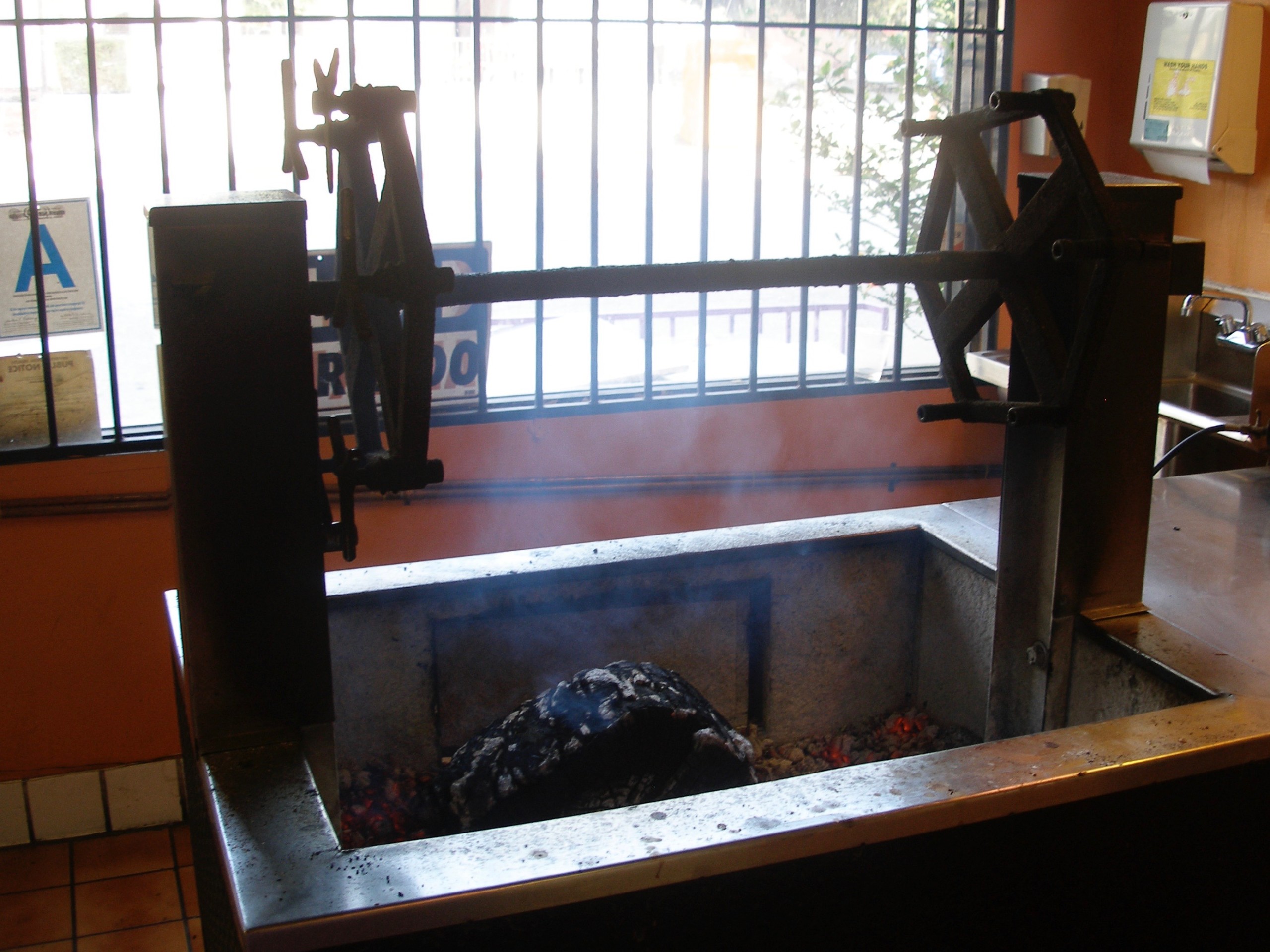
An impressive spit is focal point of TiGeorges’ dining room. The pit normally hosts a hulking mass of still-smoking avocado wood.
Laguerre originally purchased avocado wood on a lark, and was forced to continue with his selection after a well-regarded restaurant critic pinpointed the unique flavor of the avocado wood as a key to TiGeorges’ success.
The dining room is a celebration of all things Haitian, with plenty of mounted photos of Laguerre’s homeland, along with a steady stream of island music.
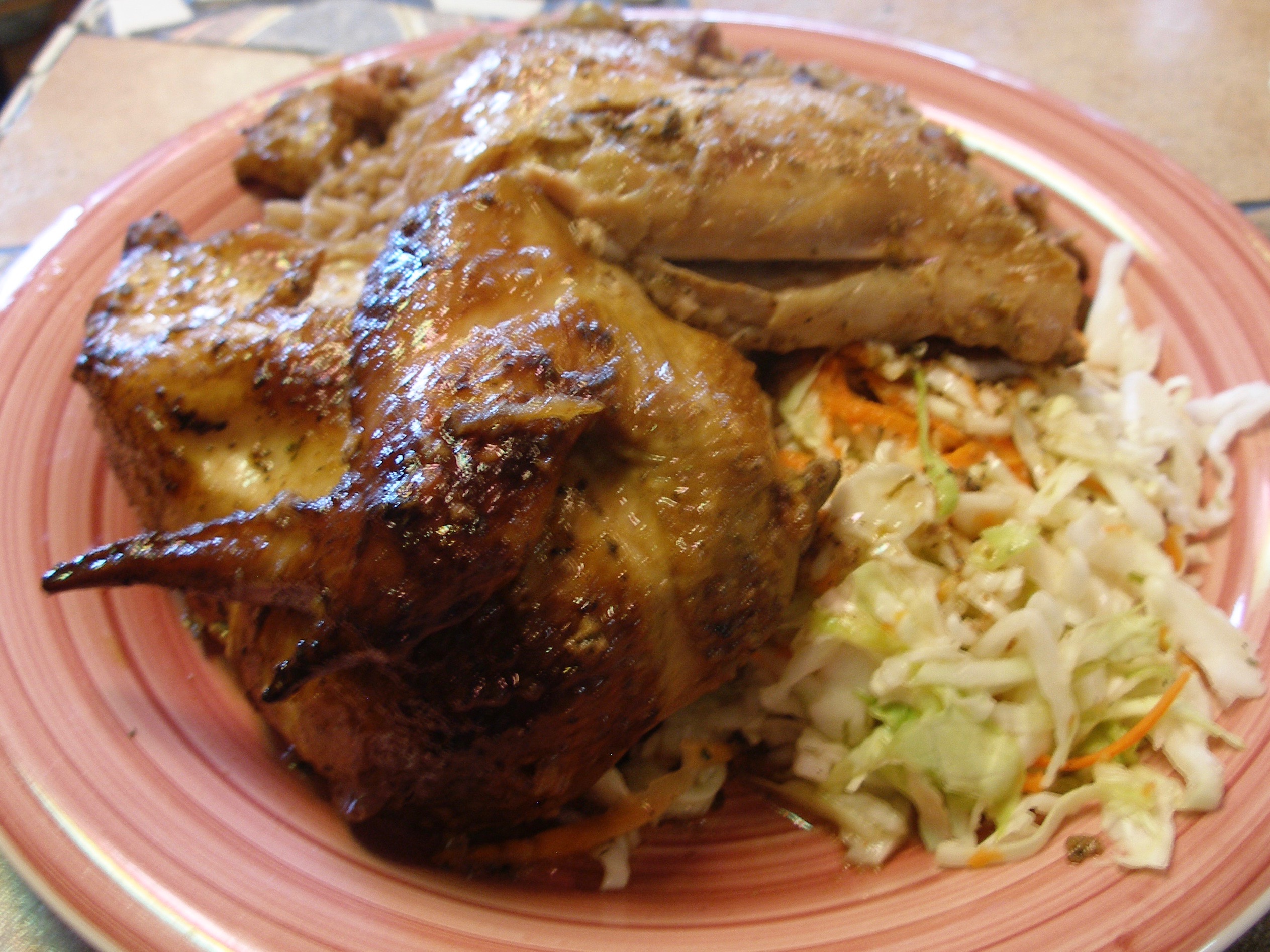
It’s no surprise given the restaurant’s name that chicken is a must-order item.
Spice-rubbed birds remain moist and tender, even after hours of rotating on the spit. The best way to experience the chicken is by ordering The Island Combo ($14.75), which also includes moist rice and beans and a spicy pickled cole slaw known as Pikliz.
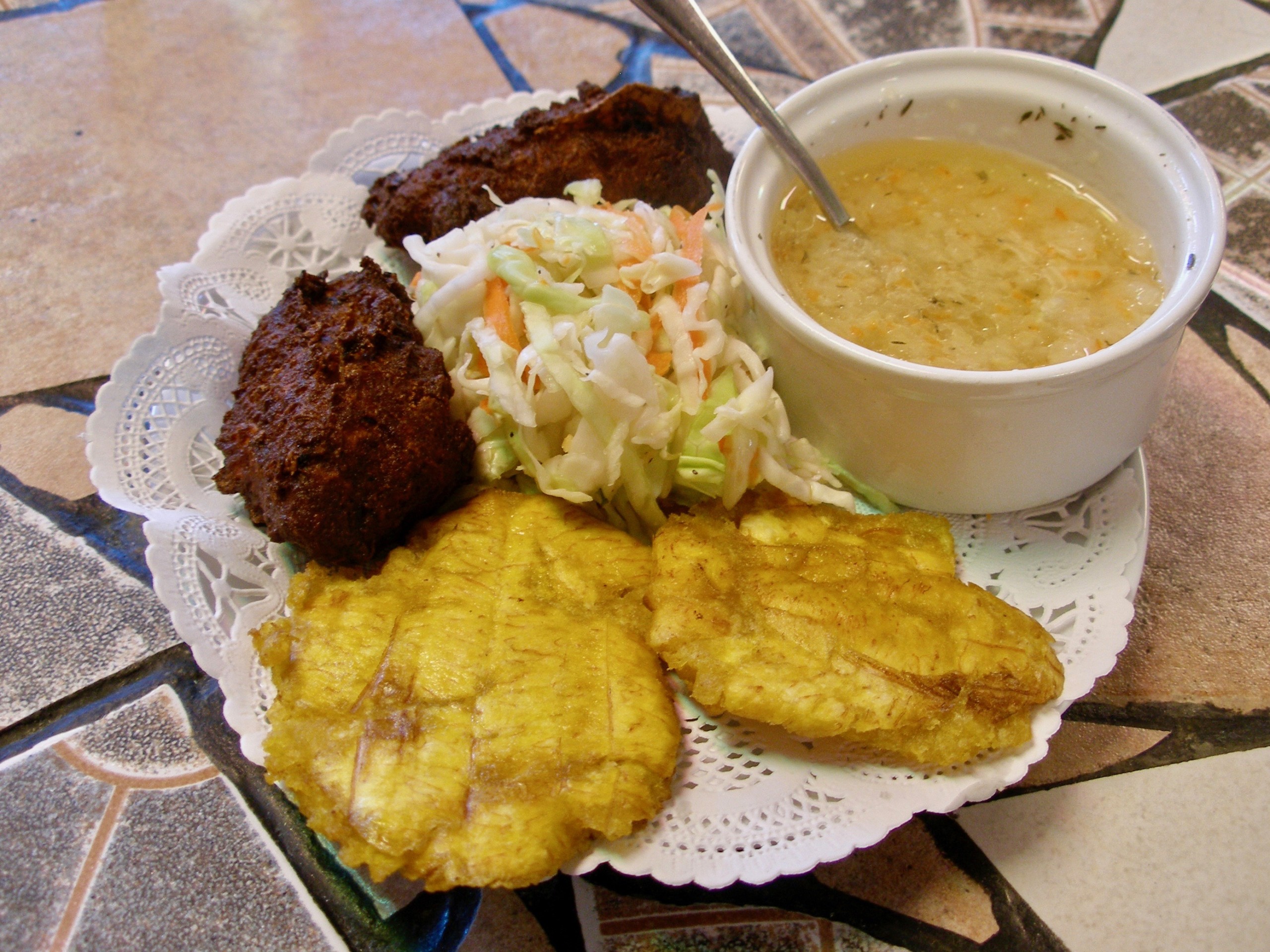
The rest of combo includes hushpuppy-like fritters crafted from a blend of taro and herring. They had golden sheathes and creamy, pungent interiors. Plataños Fritos were smashed and fried plantain discs.
Unripened plantains are normally bone-dry at Cuban restaurants, but not here. All of TiGeorges’ sides are interesting, but Ti Malis Sauce packed the biggest wallop. The vinegary sauce featured plenty of minced garlic and was terrific spooned over the pikliz, rice and beans and chicken.
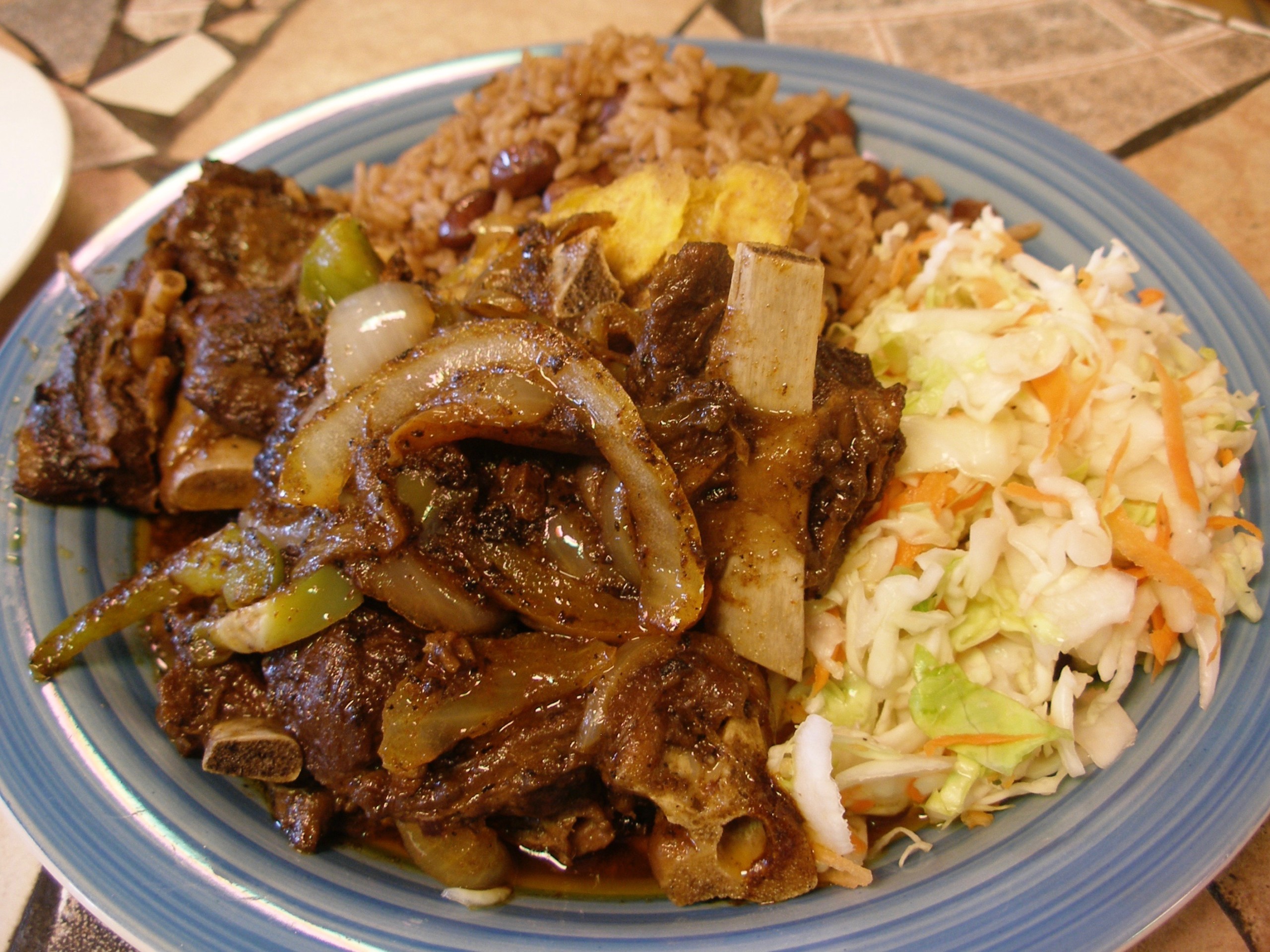
TiGeorges’ Chicken isbest known for chicken, but after tasting Laguerre’s Cabrit Fricasse ($15.95) – goat meat – that probably shouldn’t be the case.
Slow-cooked goat meat was like a gamier lamb shank, slathered with spices and tossed with tender cuts of onion and green bell pepper. The flavor built with each bite.
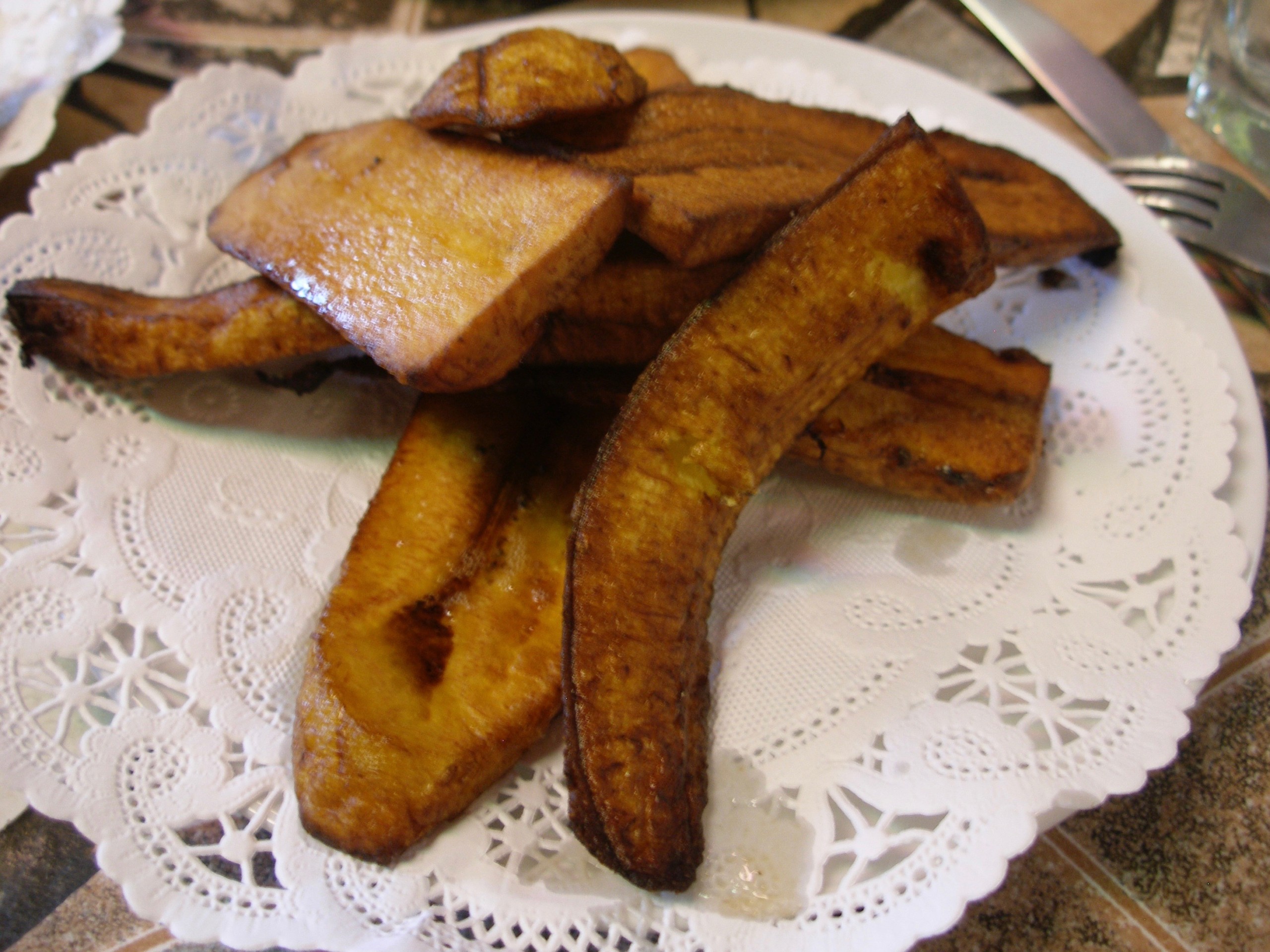
Plataños Fritos ($4.75) were expertly fried, not candy-sweet or cloying in the least. The exteriors became nice and crisp. The insides: firm.
Laguerre said that coffee is grown wild in Haiti, with no irrigation. He said the island cools down at night, so the pests scatter, eliminating the need for pesticides. By day, it’s hot and humid, which spurs growth. The combination leads to a superior product. Laguerre procures beans from the northwest part of the island and roasts them in-house.
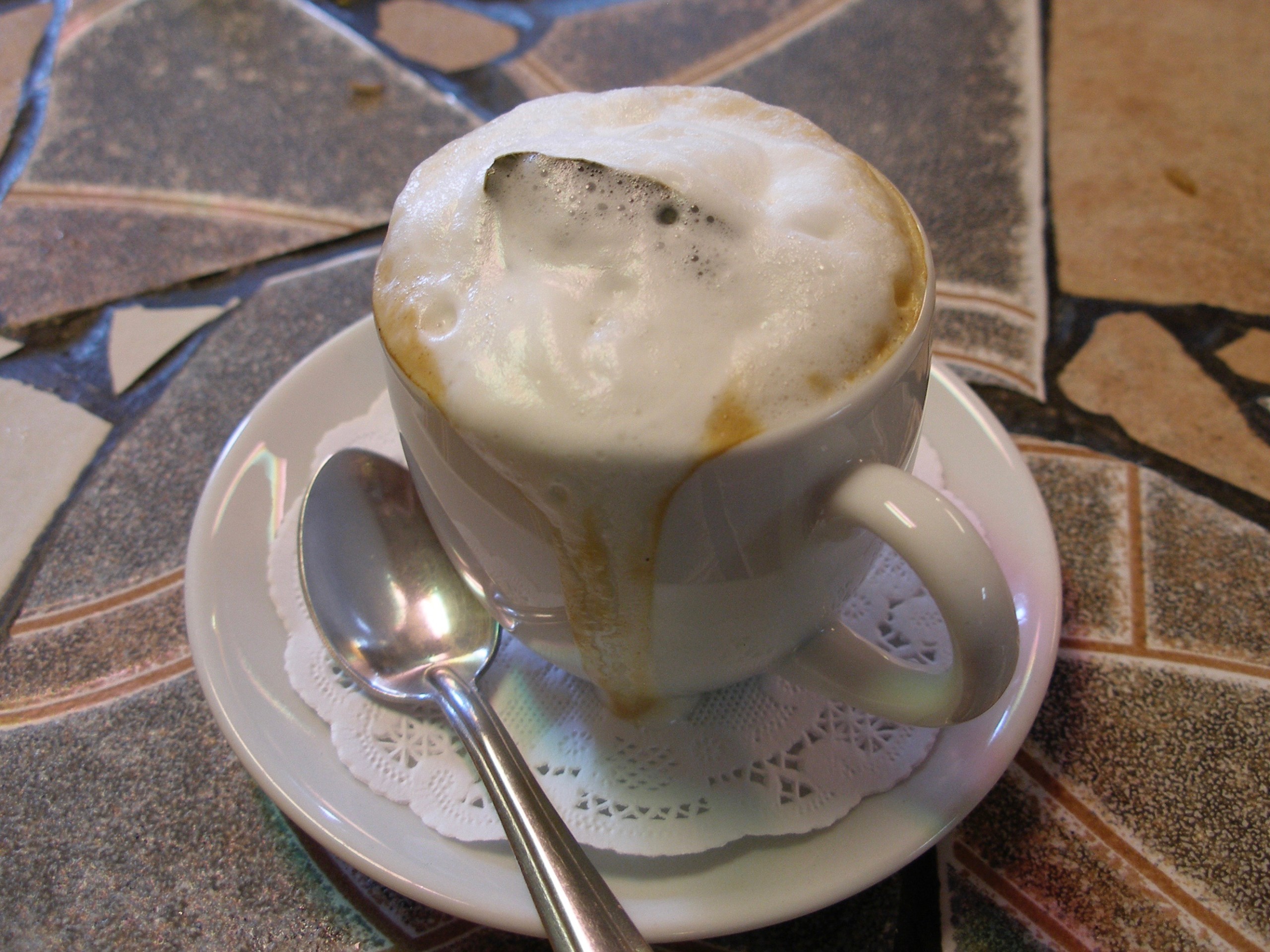
He tops Café Au Lait ($3.75) with frothy crema, a single bay leaf and lime zest, which provided a uniquely flavorful coffee experience that didn’t require any sugar.
If you want to take a taste of Haiti to go, Laguerre sells packages grapefruit jam, hot pickle pikliz or organic Haitian coffee.
Laguerre was out of sautéed conch, pork meat and Pâtè de Poulet (Chicken Pocket). Fine by me. That’s three more excuses to return.

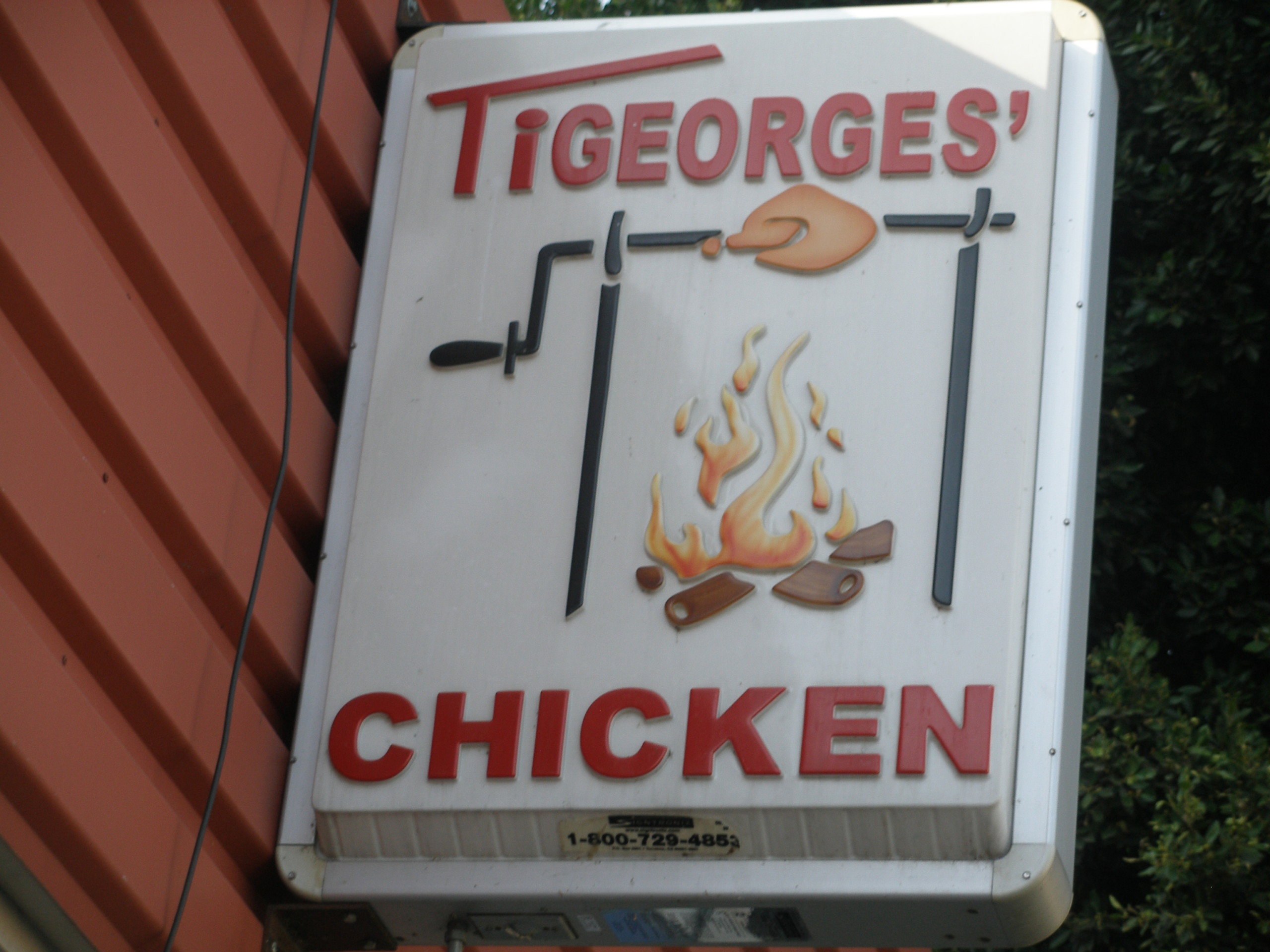







Blog Comments
TonyC
November 20, 2008 at 4:02 PM
indeed that is a FINE cafe, but the jerk chicken @ Princess Kitchen has much more funk, much more kick: http://sinosoul.com/?p=406